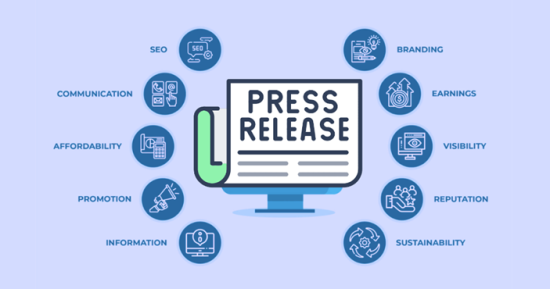
As the business landscape continues to evolve, entrepreneurs are constantly seeking innovative ways to secure the financing they need to bring their ideas to life. One increasingly popular option for startups and small businesses is the LLC (Limited Liability Company) business loan. These flexible financing solutions are designed to cater to the unique needs of LLCs, providing access to crucial funding that can help propel your business forward in 2024 and beyond.
LLC business loans offer a range of benefits, making them an attractive choice for entrepreneurs with limited or no business or credit history. Unlike traditional business loans, these startup-friendly financing options often have less stringent qualification requirements, making them more accessible to new businesses. Whether you’re looking to clear a 1 crore debt, get a 30 lakh loan for your business, or secure a 1 crore business loan, LLC business loans can provide the flexible funding you need to turn your entrepreneurial dreams into reality.
As you explore the world of LLC business loans, it’s important to understand the nuances of these financing options, including the business loan interest rates, the process of getting an LLC in Texas, and the role of LLCs in banking. By familiarizing yourself with these key considerations, you can make informed decisions and choose the right loan to support your business goals.
Whether you’re a first-time entrepreneur or a seasoned business owner, LLC business loans offer a compelling solution for accessing the capital you need to thrive in the dynamic market of 2024. By understanding the benefits, types, and qualification criteria of these loans, you can position your LLC for success and unlock new opportunities for growth and expansion.
Understanding LLC Business Loans
LLC (Limited Liability Company) business loans are a unique financing option that provides startups and small businesses with limited or no credit history the opportunity to access the capital they need to grow. These loans are designed to cater to the specific needs of LLCs, offering a more accessible alternative to traditional business loans.
What is an LLC Business Loan?
An LLC business loan is a type of financing that is tailored to the needs of Limited Liability Companies. Unlike traditional business loans, which often require extensive credit history and collateral, LLC business loans typically have more relaxed eligibility criteria, making them a popular choice for new or emerging businesses. These loans can be used for a variety of purposes, including working capital, equipment purchases, expansion, and more.
Benefits and Drawbacks of LLC Business Loans
One of the key benefits of LLC business loans is their accessibility. LLC loans often have less stringent qualification requirements compared to traditional business loans, making them a viable option for entrepreneurs seeking business financing. Additionally, interest rates on LLC loans can be competitive, providing a cost-effective source of capital for small businesses.
However, it’s important to note that LLC business loans may also have some drawbacks. Obtaining an LLC and then securing a loan can be a more complex process, and the loan amounts may be smaller than those offered by traditional lenders. LLCs in the banking industry may also face additional scrutiny and requirements, which can impact the loan application and approval process.
Overall, LLC business loans offer an attractive financing option for startups and small businesses with limited credit history, providing them with the resources they need to grow and succeed.
Types of LLC Business Loans
When it comes to financing an LLC (Limited Liability Company), there are several types of business loans available. These include term loans, SBA microloans, and asset-based financing.
Term Loans
Term loans are a popular choice for LLC business loans. They provide a lump sum of capital that the business can use for various purposes, such as purchasing equipment, expanding operations, or covering working capital needs. Term loans typically have fixed interest rates and repayment schedules, making it easier for LLCs to manage their financial obligations.
SBA Microloans
The U.S. Small Business Administration (SBA) offers SBA microloans, which are particularly well-suited for LLCs and other small businesses. These loans provide up to $50,000 in financing, with lower interest rates and longer repayment terms compared to traditional business loans. SBA microloans can be used for a variety of purposes, including working capital, inventory, supplies, furniture, and equipment.
Asset-Based Financing
Another option for LLC businesses is asset-based financing, which uses the company’s assets, such as accounts receivable, inventory, or equipment, as collateral for the loan. This type of financing can be particularly beneficial for LLCs with limited credit history or those that need to access larger amounts of capital.
| Type of LLC Business Loan | Description | Typical Loan Amount | Repayment Terms |
|---|---|---|---|
| Term Loan | Lump sum of capital for various business needs | Varies | Fixed interest rates and repayment schedules |
| SBA Microloan | Financing up to $50,000 from the U.S. Small Business Administration | Up to $50,000 | Lower interest rates and longer repayment terms |
| Asset-Based Financing | Loan secured by the company’s assets, such as accounts receivable, inventory, or equipment | Varies based on assets | Flexible based on the value of the assets |
Personal Loans for Business Purposes
When it comes to securing financing for a new LLC or startup, many entrepreneurs may find that personal loans can be a more accessible option compared to traditional business loans. According to the first source, personal loans are often easier for a new business owner to qualify for, especially if the startup has limited or nonexistent business history.
The application and approval process for personal loans may be less rigorous than that of a business loan, and startup owners may be able to access lower annual percentage rates (APRs) than what’s available with some business loans. However, one potential drawback is that the available borrowing limits for personal loans are usually lower than what can be obtained through a dedicated business loan.
For those LLC owners or startup founders considering a personal loan to fund their business, it’s important to carefully evaluate the terms, interest rates, and repayment schedules to ensure it aligns with their financial needs and business goals. By weighing the pros and cons, entrepreneurs can determine if a personal loan is the best fit for their business financing requirements.
Business Credit Cards for LLCs

For Limited Liability Companies (LLCs) seeking alternative financing options, business credit cards can be a valuable tool. According to the first source, business credit cards often have a faster application and approval process compared to traditional loans, and startup owners are more likely to get approved based on their personal credit scores. This makes business credit cards an attractive choice for LLCs, especially those with limited or nonexistent business histories.
Another key benefit of business credit cards for LLCs is that they are typically unsecured, meaning new business owners don’t have to come up with valuable collateral to secure the financing. This can be particularly appealing for LLC companies in India or those looking to set up an LLC in India, where collateral requirements can sometimes be a barrier to obtaining traditional business loans.
When it comes to the full form of LLC in tax considerations, business credit cards can offer LLCs a flexible and accessible financing option. These cards can be used to cover a wide range of business expenses, from inventory and equipment to marketing and operational costs, without the need for a lengthy loan application process. This makes them a popular choice for what is LLC also known as – entrepreneurs and small business owners seeking to quickly access the capital they need to grow and succeed.
Overall, business credit cards can be a valuable financing tool for LLCs, providing faster approval, unsecured funding, and the flexibility to cover a variety of business expenses. As LLCs continue to play a vital role in the entrepreneurial landscape, understanding the benefits and drawbacks of business credit cards can help these companies make informed financing decisions that align with their unique needs and goals.
Lenders Offering LLC Business Loans
When it comes to securing financing for your LLC, you’ll find a diverse array of lenders offering tailored solutions. From online platforms to traditional financial institutions, the options span a wide spectrum to meet the unique needs of small businesses.
Online Lenders
The rise of online lending has revolutionized the way LLCs access capital. These tech-savvy platforms often provide a more streamlined application process and quicker funding timelines compared to traditional banks. Whether you’re looking to clear 1 crore debt or get a 30 lakh loan for your business, online lenders can be a viable option, especially for startups and businesses with limited credit history.
Traditional Banks
While online lenders have gained popularity, the tried-and-true traditional banks remain a trusted source for LLC business loans. These established financial institutions often have a deep understanding of the local market, including the texas llc fee and why Texas is good for LLCs. By working with a bank, you can leverage their expertise and potentially secure more favorable terms, particularly if your LLC has a strong financial track record.
Credit Unions
As an alternative to both online lenders and traditional banks, credit unions can be a valuable resource for LLC financing. These member-owned cooperatives often prioritize helping businesses get started and may offer more personalized service and competitive rates. If you’re in the process of making a business, exploring credit union options could be a strategic move to secure the funding you need.
LLC business loan Qualification Criteria

When applying for an LLC business loan, lenders typically consider several key factors to evaluate the creditworthiness of the applicant. Two of the most important criteria are the applicant’s credit score and the strength of their business plan and financial documentation.
Credit Score Requirements
Lenders often have minimum credit score requirements for LLC business loan applicants. The specific score needed can vary, but many online lenders and banks may look for a credit score of at least 600 or higher. Applicants with a higher personal credit score tend to have a better chance of getting approved for an LLC business loan and may even qualify for more favorable terms, such as lower interest rates or larger loan amounts.
Business Plan and Financial Documentation
In addition to a strong credit profile, lenders will carefully assess the strength of the LLC’s business plan and financial documentation. This typically includes providing a detailed business plan that outlines the company’s products or services, target market, competitive landscape, marketing strategies, and financial projections. Lenders may also require extensive financial records, such as profit and loss statements, balance sheets, cash flow statements, and tax returns, to evaluate the LLC’s financial health and ability to repay the loan.
Startups or LLCs with limited business history may need to rely more heavily on the owner’s personal financial information and credit profile to secure financing. Lenders want to see a clear path to profitability and a well-reasoned plan for how the LLC business loan will be used to support growth and success.
Preparing Your LLC Business Loan Application
Securing an LLC business loan requires a well-structured application that showcases your company’s viability and your ability to repay the loan. Two crucial elements in this process are crafting a solid business plan and building a strong credit profile. By dedicating time and effort to these areas, you can increase your chances of obtaining the financing needed to take your Texas-based LLC to new heights.
Crafting a Solid Business Plan
Your business plan is the foundation of your LLC business loan application. It should provide lenders with a comprehensive understanding of your company’s operations, financial projections, and growth strategy. Ensure your plan includes details on your [how to make a business?] venture, such as your products or services, target market, competitive analysis, and marketing initiatives. Additionally, include well-researched financial statements, cash flow projections, and a clear explanation of how the loan proceeds will be used to support your business objectives.
Building Your Credit Profile
Lenders will closely examine your personal and business credit profiles when evaluating your [how to get an llc in texas?] loan application. To strengthen your chances of approval, focus on building a positive credit history by making timely payments on existing debts and minimizing the use of credit. Additionally, consider [what is llc in banking?] strategies to improve your [why texas is good for llc?] credit score, such as disputing errors on your credit report and becoming an authorized user on someone else’s credit card with a long, positive history.
Alternative Financing Options for LLCs
While traditional business loans can be a viable option for LLCs, there are also alternative financing avenues worth exploring. Two popular alternatives are crowdfunding and invoice factoring, both of which offer distinct advantages for entrepreneurs seeking to [how to clear 1 crore debt?] or [how to get a 30 lakh loan for business?].
Crowdfunding
Crowdfunding platforms provide LLCs with the opportunity to connect directly with a large pool of potential investors or backers. By crafting a compelling campaign that highlights your [what are good names for llc?] or [what is an llc company in india?], you can tap into the collective power of the crowd to fund your business initiatives. This approach not only helps [is google an llc or inc.?] but also allows you to [how do i name my company?] and build a loyal customer base from the outset.
Invoice Factoring

For LLCs that need to [how to get a 30 lakh loan for business?] or manage cash flow challenges, invoice factoring can be a valuable financing option. This technique involves selling your outstanding invoices to a factoring company in exchange for a lump sum, typically up to 85% of the invoice value. This can provide a much-needed influx of capital while [what is a us llc?] waits for customer payments to come in.
Managing LLC Business Loan Repayment
As an entrepreneur, managing the repayment of your LLC business loan is a crucial aspect of ensuring the long-term success and financial stability of your venture. Whether you’ve secured a 1 crore business loan or a smaller loan, having a solid strategy for repayment can make all the difference.
One key step in managing your LLC business loan repayment is to establish a clear and comprehensive repayment plan. This should include details such as the loan amount, interest rate, repayment schedule, and any upcoming due dates. Familiarize yourself with the terms and conditions of your loan, and work closely with your lender to understand your obligations and ensure timely payments.
Additionally, it’s essential to maintain a strong financial discipline and budget effectively. Allocate a portion of your LLC’s revenue towards making timely loan payments, and consider strategies like automating payments or setting up email or text reminders to help you stay on track.
If you’re a US LLC or an LLC company in India, it’s also important to understand the specific tax implications and legal requirements related to your business loan repayment. Consult with a qualified accountant or financial advisor to ensure you’re meeting all necessary compliance guidelines and optimizing your tax strategy.
Remember, successful LLC business loan repayment can not only help you build a strong credit profile and reputation, but it can also open up new opportunities for growth and expansion in the future. By staying proactive and responsible in your repayment efforts, you’ll be well on your way to achieving your entrepreneurial goals.
Choosing the Right LLC Business Loan
When it comes to financing your LLC business, selecting the right loan option is crucial. Navigating the diverse landscape of LLC business loans can be a daunting task, but understanding the nuances of each loan type can help you make an informed decision. What is LLC debt, and how does it impact your borrowing options? What is the full form of LLC in tax, and how does it affect your loan eligibility?
Exploring the various loan types, such as term loans, SBA microloans, and asset-based financing, can help you identify the best fit for your LLC’s needs and financial profile. Additionally, familiarizing yourself with the short notes on LLCs, including their advantages and potential drawbacks, can assist you in navigating the loan application process more effectively.
By thoroughly understanding the landscape of LLC business loans and aligning your financing needs with the right lender, you can position your LLC for success and unlock the resources necessary to fuel its growth and development.
FAQs on LLC Business Loan
Can an LLC get a business loan?
Yes, an LLC can secure a business loan from different sources, including banks, credit unions, or online lenders. This flexibility provides you to choose the best option based on your financial situation and the lender’s requirements. You can select for a secured loan or an unsecured one, depending on what suits your needs best.
What documents are needed for an LLC business loan?
When applying for an LLC business loan, it’s important to be prepared with the necessary documents. These typically include the LLC’s financial statements, tax returns, business plan, and legal documents, such as the operating agreement and articles of organization. Having these ready will not only speed up the application process but also demonstrate your professionalism and readiness to the lender.
Is personal credit checked for an LLC business loan?
Yes, lenders often check the personal credit of the LLC’s owners or guarantors, especially for unsecured business loans, to assess the creditworthiness of the applicants. This is because, in many cases, the owners or guarantors are personally liable for the loan, even if it is taken out by the LLC.
Can an LLC get an unsecured business loan?
An LLC can get an unsecured business loan, which usually requires strong credit and financial stability. The interest rates for unsecured loans can start from 7% to 30%, depending on the lender and the LLC’s financial situation. This is typically higher than the rates for secured loans.
What collateral is needed for a secured LLC business loan?
For a secured LLC business loan, collateral can include business assets such as equipment, inventory, real estate, or even personal assets of the LLC’s owners, depending on the lender’s requirements.






